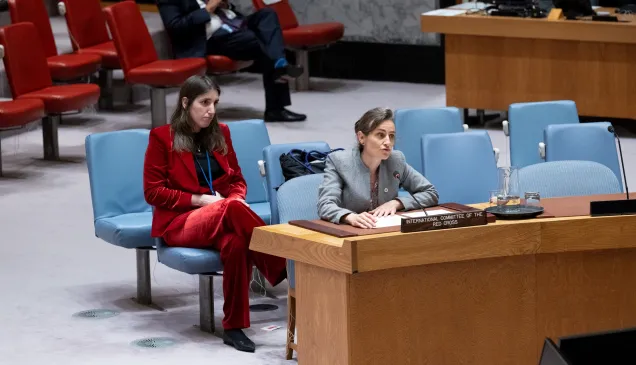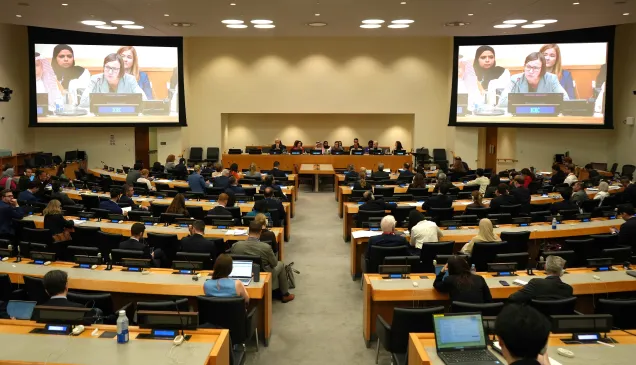As delivered by Robert Mardini, ICRC Permanent Observer to the United Nations and head of delegation, ICRC NYC
The ICRC is grateful for the opportunity to address the Security Council and share our experience in connection with persons deprived of their liberty.
In 2018 alone, the ICRC visited more than 1 million persons in places of detention. In our activities we come across programmes whose aim is to prevent or eradicate violent extremism and in particular policies described as 'prevention of radicalization' and 'de-radicalization.'
Some measures targeting detainees accused or convicted of offenses related to terrorism can have harmful consequences not only for detainees themselves but also for the wider detained population and society as a whole. Such measures include placing detainees evaluated as radicalized or at risk of becoming radicalized in isolation; grouping them together in special wings or placing them under strict regimes; reducing access to services and rehabilitation programs; or submitting them to frequent or repeated transfers. The potential consequences of such measures contradict the aim of protecting the public from acts of violent nature.
Today, I highlight five key safeguards that when included in policies can help counter or prevent violent extremism or help prevent 'radicalization' in places of detention:
First, respect the rule of law and treat detainees humanely. Respect for the law and the dignity and protection of physical and psychological integrity of detainees are the basis of any successful program in detention. Moreover, they are a must.
Second, take an individualized risk and needs assessment and couple this with a tailor-made response and follow-up. This would help minimize the stigmatization of some groups of detainees.
Third, ensure restrictions are legally-based, necessary and proportionate. All detainees have the right to essential services and goods such as daily access to open air, water, food, sanitation facilities, health care, and meaningful human interaction, including contact with the family.
Fourth, put in place high quality, trained, supported, and supervised detention staff.
And fifth, ensure good order and security in detention for all detainees, not just for specific groups. To have a positive impact and avoid discrimination, material or financial support must benefit the whole detention system. This also applies to any external interventions, such as bilateral and intergovernmental cooperation initiatives.
Above all else: treat detainees humanely. Inhumane conditions and treatment contradict State obligations and are counterproductive to preventing 'radicalization' and violent extremism.
The ICRC stands ready to work with States to ensure humane treatment and conditions for all detainees.



